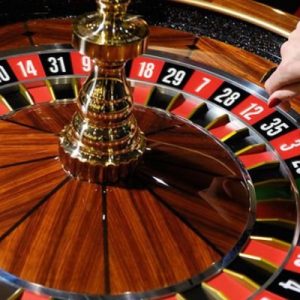In recent years, the gaming industry has witnessed a seismic shift with the advent of Non-Fungible Tokens (NFTs). These unique digital assets have transformed how players interact with games, creating new opportunities for ownership, trading, and engagement. In this blog, we’ll explore what nft games are, how they work, their benefits, challenges, and the future of this innovative sector.
What Are NFT Games?
NFT games are video games that incorporate blockchain technology to provide players with true ownership of in-game assets. Unlike traditional games, where items are often tied to a centralized server and can be lost or restricted by the game developers, NFTs allow players to own, trade, and sell their virtual items in a decentralized manner.
How Do NFT Games Work?
At the heart of NFT games lies blockchain technology, which serves as a public ledger that records ownership and transaction details. Each item in an NFT game—whether it’s a character, weapon, or piece of land—is represented by a unique token on the blockchain. Here’s how the mechanics typically work:
- Minting: Players create or purchase unique items as NFTs, often using cryptocurrency.
- Trading: Players can trade their NFTs on various marketplaces, facilitating a vibrant economy within and outside the game.
- Gameplay Integration: NFTs can enhance gameplay by providing players with special abilities, aesthetic customization, or unique quests tied to their owned assets.
Benefits of NFT Games
- True Ownership: Players have genuine ownership of their in-game assets, which they can sell or trade even after they stop playing.
- New Revenue Streams: Players can earn real money through trading and selling their NFTs, providing an additional incentive to play.
- Interoperability: Some NFT games allow players to use their assets across different games, enhancing their utility and value.
- Community Engagement: The community-driven nature of NFT games fosters stronger player interactions and a sense of belonging.
Challenges Facing NFT Games
While NFT games offer exciting opportunities, they also face several challenges:
- Market Volatility: The value of NFTs can fluctuate wildly, leading to potential financial losses for players.
- Environmental Concerns: The energy consumption associated with blockchain transactions raises sustainability issues.
- Regulatory Uncertainty: As the NFT market grows, regulatory frameworks are still developing, creating uncertainty for developers and players alike.
- Scalability Issues: Some blockchain platforms struggle with high transaction fees and slow processing times during peak usage.
The Future of NFT Games
The future of NFT games looks promising, with several trends emerging:
- Increased Adoption: As more gamers become aware of NFTs, we can expect a rise in adoption rates, with mainstream titles integrating NFT mechanics.
- Cross-Platform Play: Games that allow asset transfers across multiple platforms will likely gain popularity, enriching the gaming experience.
- Innovative Game Design: Developers will explore creative game mechanics that leverage the unique properties of NFTs, leading to fresh gameplay experiences.
- Social Experiences: NFT games may evolve into social platforms where players can showcase their collections, compete in tournaments, and interact in virtual environments.
Conclusion
NFT games are redefining the gaming landscape, offering players new ways to engage with their favorite titles while providing genuine ownership of in-game assets. Despite the challenges they face, the potential for innovation and growth in this space is immense. As the technology continues to evolve, we can expect NFT games to become an integral part of the gaming ecosystem, shaping the future of play.





